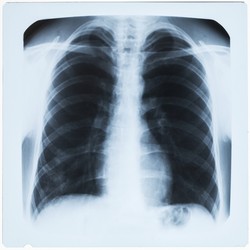Rapid diagnosis of pneumonia
Respiratory tract infections (RTIs) caused by bacterial, viral, fungal or other pathogens are responsible for millions of deaths every year. RTIs acquired in the community are called community acquired pneumonia (CAP) and those acquired in hospitals are called hospital acquired pneumonia (HAP), which include ventilator associated pneumonia (VAP). Currently, laboratory diagnosis of RTIs takes at least two days with patients given empirical antibiotics in the meantime. Besides being ineffective, such treatment could also compromise patient outcome. The scope of the EU-funded RID-RTI (Rapid identification of respiratory tract infections) project was to develop a diagnostic platform for the rapid diagnosis of different types of pneumonia in less than two hours. The generated platform relied on the molecular detection of pathogens and entailed the isolation of pathogen DNA from respiratory specimens. As a first step, researchers identified several pathogen targets as well as antibiotic resistance genes for PCR amplification. A panel of RTI-specific pathogens were selected for each type of pneumonia (CAP, HAP, and VAP). Multiplex real-time PCR assays were designed and optimised in each case alongside hybridisation probes. The resultant platform integrated single cartridge sample preparation, nucleic acids amplification and detection by hybridisation. Furthermore, the RID-RTI device incorporated instrument control, analysis and user interface software and the HAP/VAP cartridge underwent analytical testing. Considering that RTIs remain difficult to diagnose because of the broad range of implicated pathogens, the RID-RTI platform provides an excellent tool for accurate diagnosis. Most importantly, the time-effectiveness of the approach will facilitate prompt decisions on antibiotic therapy and improve the overall patient outcome.
Keywords
Pneumonia, respiratory tract infection, pathogen, RID-RTI, PCR







